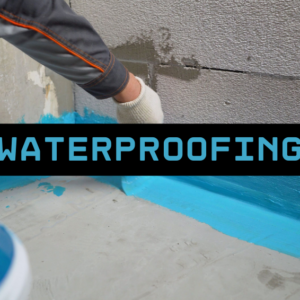Home warranties centre around the idea of protecting yourself in the event of an appliance or system breaking down. After all, like with any insurance, you insure against things that you cannot afford to cover when something goes wrong. If you can easily afford to replace your new $1,000 iPhone in the event of breaking it, then there’s little reason to insure it. Many of us can’t though, so we get insurance. Equally, if you also don’t have the time to replace it, then insurance might also be worth it.
The other reason why many don’t insure our phones is because we can live without it (or get a very cheap replacement for the time being). So when we take into account these three factors of having: the money, time and necessity to replace the item, then we get an idea of if we need insurance.
It’s funny then, that we insure our cars, homes, life and even electronics, but we don’t always insure the very systems that we depend on to live day-to-day. In many cases, we cannot live without them, we cannot afford to outright replace them, and we don’t have the time to DIY fix them. Many believe that they do have the time to fix them, or learn how to, but it’s not always safe to do so and can often lead to further damages. In fact, the stress alone of figuring it out isn’t worth the money for some.
Whilst it really depends on your DIY skills, it’s safe to say that for most of the population, they don’t have the skills or time required to fix the items themselves, whilst the potential payout for brand new systems can throw a spanner into the works regarding budgeting. But let’s break it down, because for some, you might feel although you’re better off alone in fixing your house issues.
This article will dive into these questions of the advantages of DIY, and asking when are home warranties worth it?
Pros of DIY
Money
When performing DIY, you have real potential to save a lot of money. Paying a labourer is usually going to be a significant amount per hour. You could be looking at over $1,000 per year in savings.
Customisation
When doing things yourself, you have a lot more freedom. You can get halfway through a paint job and realise you don’t like it, and switch it up. If you have a very strong, clear vision, sometimes it’s best to follow it through yourself.
Learning
Learning new skills is very appealing to many of us. Not only will the experience of learning be worth something and enjoyable, but it could mean you become more efficient the next time round. Possibly people will start paying you to fix their toilet?
Vlogging
Many choose to document their DIY activities. If you’re about to complete a van conversion into a camper, it would be wise to video or take pics along the way. You might find yourself with a crowd who can learn from the experience, and might even be able to monetize it.
Cons of DIY
Time
There’s a reason labourers charge for their time, because time has a value. What good would it be to have all the money in the world but no time? Well, think of it like this. What wage do you earn? Your time is worth something too. Sometimes it’s worth paying others to afford yourself more leisure time, or more time to work on your own revenue-generating activities.
Warranty
If you try to repair something and break something along the way, you might not be covered. In fact, you may end up worsening the problem and it costing more than just getting a contractor. At least if the contractor damages something when trying to repair, they’ll cover the costs.
Tools and materials
Sometimes it may seem like you’re saving money by doing it yourself, but you’re in fact buying tools and materials you require for the project. The great thing about contractors is that you’re only paying for their time, not their time + their screwdriver costs. The costs may soon add up to a lot, also given our tendencies to overpay for tools.
Skills required for DIY on home systems
Trying to fix your old fridge is one thing, but DIY on systems such as the HVAC is another beast. It isn’t entirely recommended, as you may end up doing more harm than good. Expensive systems require a safe pair of hands and some experience.
To maintain an HVAC system for example, you must carefully brush and clean the inside evaporator coil, drain pan, change the blower filter as well as maintain the outside of it too. The worst thing is that any mishandling of these may result in a loss of efficiency, which you may not notice at first. This could lead to higher bills/dysfunctioning HVAC system that you’re running for a long time.
Additionally, there’s a danger element to this too. Dealing with electrics can have severe consequences. Seeing as you’re better off looking for a repairman for such a job, you might be looking at $150 for a small HVAC repair. Larger repairs however can be around the $1,000 mark, which is perhaps why you don’t want to turn your minor problem into a major one by a DIY botch job.
Why a home warranty could be the answer (and why it might not)
As we can see, $1,000 for fixing the HVAC is a lot of money, yet it’s only one of many systems that might breakdown in your home. Home warranties cover all of these for most breakdowns, unless it was caused by neglect, accidents or weather (among some others).
Whether or not home warranties will be your best option might come down to the systems you have. If they’re looking fragile, you’re sure that they will be covered when they eventually break, and the system repairs will not vastly exceed the coverage limits, then it might be a shrewd investment.
On the other hand, if you have very expensive equipment that exceeds coverage limits by a lot, and you don’t regularly maintain your systems, then it may be worth independently hiring a contractor yourself when it breaks down. You really want to be sure that you’re fully covered, otherwise you might end up wasting money on those premium payments and deductibles.






